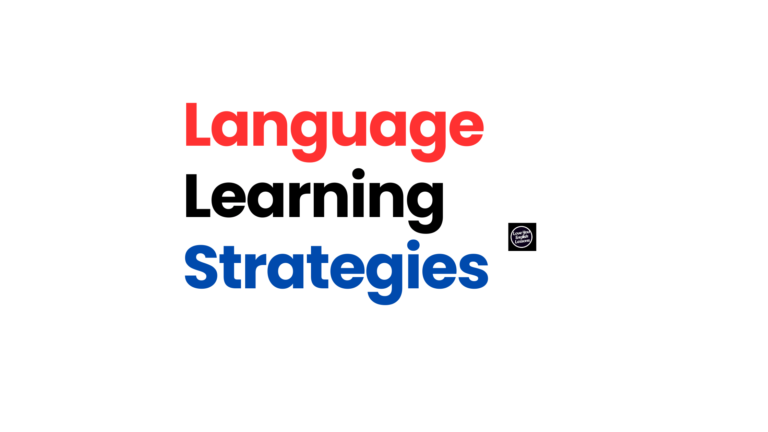How to Learn English: The Ultimate Guide
Hello everyone,
Studying English can give you lots of chances, like getting a better job and getting to know different cultures and making friends all over the world.
If you’re just starting out or you’re already pretty good at English, this guide can help you learn the language better with tips, tools, and encouragement.
Introduction
English is often called the global language, and for good reason.
It’s the most widely spoken language in the world, with over 1.5 billion speakers.
It’s the language of international business, diplomacy, science, and pop culture.
Learning English can significantly enhance your personal and professional life, allowing you to:
- Pursue education in English-speaking countries
- Access a wealth of information and entertainment
- Improve your job prospects and earning potential
- Travel more easily and confidently
- Connect with people from diverse backgrounds
This guide will take you through every aspect of learning English, from building a strong foundation to achieving fluency and maintaining your skills.
We’ll cover effective strategies, helpful resources, and tips to overcome common challenges.
Whether you’re learning English for work, study, or personal growth, this guide will help you navigate your language learning journey with confidence.
Understanding Your Motivation and Setting Goals
Before diving into language learning techniques, it’s crucial to understand your motivation and set clear, achievable goals.
This step will help you stay focused and motivated throughout your learning journey.
Identify Your Motivation:
- Career advancement
- Academic pursuits
- Personal interest in English-speaking cultures
- Travel plans
- Desire for personal growth
Set SMART Goals:
- Specific: “I want to be able to hold a 10-minute conversation in English”
- Measurable: “I will learn 20 new words each week”
- Achievable: Set realistic goals based on your current level and available time
- Relevant: Align your goals with your motivation
- Time-bound: “I will take an English proficiency test in 6 months”
Create both short-term and long-term goals to track your progress and maintain motivation.
Remember, learning a language is a marathon, not a sprint.
Celebrate small victories along the way to keep yourself encouraged.
You may also like:
- Top Online Resources to Improve Your English Skills
- 7 Surprising Benefits of Learning English
- Ultimate Guide to Learning English
- How to Learn English: The Ultimate Guide
- The Evolution of English Slang in 2024
Building a Strong Foundation
Mastering the Basics: Alphabet and Pronunciation
Even if you’re not a complete beginner, revisiting the basics can help solidify your foundation:
- Learn the English alphabet and its sounds
- Practice phonetics and pronunciation rules
- Use pronunciation guides and International Phonetic Alphabet (IPA) charts
- Listen to native speakers and try to mimic their pronunciation
- Focus on commonly mispronounced words and sounds specific to your native language
Tools like Forvo and YouGlish can help you hear pronunciations from native speakers.
Essential Grammar
While you don’t need to be a grammar expert to speak English, understanding basic grammar rules will help you communicate more effectively:
- Learn the basic sentence structure (Subject-Verb-Object)
- Understand tenses (present, past, future, and their continuous and perfect forms)
- Master common irregular verbs
- Practice using articles (a, an, the) and prepositions
- Learn about count and non-count nouns
- Understand the basics of modal verbs (can, could, should, would, etc.)
Resources like English Grammar in Use by Raymond Murphy and online platforms like Grammarly can be invaluable for grammar practice.
Building Vocabulary
A rich vocabulary is crucial for effective communication.
Here are some strategies to expand your English vocabulary:
- Learn words in context through reading and listening
- Use spaced repetition systems (SRS) like Anki or Quizlet for memorization
- Group words by themes or word families
- Study common prefixes, suffixes, and root words
- Learn collocations and idiomatic expressions
- Use a monolingual dictionary to deepen your understanding of words
Aim to learn 10-20 new words per week, and make sure to review and use them regularly in context.
Developing Language Skills
Listening
Improving your listening skills is crucial for understanding spoken English:
- Start with slow, clear audio content and gradually move to more natural speech
- Use podcasts designed for English learners (e.g., 6 Minute English, ESL Pod)
- Watch English TV shows and movies with subtitles
- Listen to English music and try to understand the lyrics
- Practice active listening by taking notes and summarizing what you hear
- Use dictation exercises to improve your ability to distinguish sounds
Speaking
Speaking is often the most challenging skill for language learners, but it’s essential for effective communication:
- Practice speaking aloud, even if you’re alone
- Use language exchange apps like Tandem or HelloTalk to find conversation partners
- Join English conversation groups or clubs in your area
- Record yourself speaking and listen back to identify areas for improvement
- Practice tongue twisters to improve pronunciation and fluency
- Use shadowing techniques: listen to a native speaker and repeat what they say in real-time
Don’t be afraid to make mistakes – they’re a natural part of the learning process.
Reading
Reading helps you encounter new vocabulary, grammar structures, and ideas in context:
- Start with graded readers appropriate for your level
- Read diverse materials: news articles, blogs, short stories, novels
- Use extensive reading techniques: read for overall understanding without looking up every word
- Practice intensive reading: analyze texts in detail, looking up unfamiliar words and structures
- Join an online book club for English learners
- Use tools like LingQ or Readlang to make reading interactive
Writing
Writing helps reinforce grammar rules and vocabulary while developing your ability to express complex ideas:
- Keep a daily journal in English
- Participate in online forums or social media discussions in English
- Practice writing different types of texts: emails, essays, stories, reports
- Use writing prompts to spark creativity
- Get feedback on your writing through platforms like Lang-8 or write.com
- Study model texts to understand different writing styles and structures
Immersion Techniques
Immersing yourself in English can significantly accelerate your learning:
- Change your phone and computer language settings to English
- Surround yourself with English: labels, post-it notes, reminders
- Consume English media: news, podcasts, YouTube videos, books
- Think in English: narrate your daily activities to yourself in English
- Travel to English-speaking countries if possible
- Attend English-speaking events or meetups in your area
If full immersion isn’t possible, create “mini-immersion” experiences by dedicating certain times of the day to English-only activities.
Leveraging Technology and Resources
Take advantage of the wealth of technology and resources available for English learners:
- Language learning apps: Duolingo, Babbel, Busuu
- Online courses: Coursera, edX, FutureLearn
- YouTube channels for English learners: EnglishClass101, Rachel’s English, BBC Learning English
- Podcasts: All Ears English, English Learning for Curious Minds
- AI language partners: ChatGPT, Replika
- Browser extensions: Google Dictionary, Grammarly
- Gamified learning: Lingualeo, Memrise
Remember to use a mix of resources to keep your learning engaging and to address all aspects of language acquisition.
Overcoming Common Challenges
Learning English comes with its share of challenges.
Here’s how to overcome some common ones:
- Pronunciation difficulties: Focus on problematic sounds, use pronunciation apps, and practice regularly
- Grammar confusion: Break complex rules into smaller parts, use visual aids, and practice with targeted exercises
- Vocabulary retention: Use mnemonics, spaced repetition, and contextual learning
- Speaking anxiety: Start small, practice self-talk, and remember that mistakes are part of learning
- Lack of practice opportunities: Use language exchange apps, join online communities, and create your own immersion environment
- Plateauing: Mix up your learning methods, set new challenges, and focus on your weaknesses
- Inconsistency: Develop a routine, set reminders, and track your progress to stay motivated
Advanced Techniques for Fluency
Once you’ve built a strong foundation, try these techniques to push towards fluency:
- Shadowing: Listen to native speakers and repeat what they say in real-time
- Scriptorium technique: Write out texts by hand while saying them aloud
- Laddering: Learn complex topics in English instead of your native language
- Parallel reading: Read the same text in English and your native language
- Narrow listening: Listen to the same content multiple times, focusing on different aspects each time
- Debate and discussion: Engage in English debates to improve critical thinking and speaking skills
- Creative writing: Write short stories or poetry in English to stretch your language skills
Maintaining and Improving Your English
Once you’ve reached a high level of proficiency, it’s important to maintain and continue improving your skills:
- Set new, challenging goals regularly
- Engage with native-level content across various fields
- Teach English to others – explaining concepts will deepen your own understanding
- Focus on nuanced aspects of the language: idioms, phrasal verbs, slang
- Explore different English accents and dialects
- Take advanced English courses or pursue certifications
- Join professional networks or associations that operate in English
Conclusion
Learning English is a journey that requires dedication, consistency, and patience.
Remember that everyone’s path to fluency is different, and what works best for you may be a unique combination of the strategies and resources mentioned in this guide.
Key takeaways:
- Understand your motivation and set clear, achievable goals
- Build a strong foundation in pronunciation, grammar, and vocabulary
- Develop all four language skills: listening, speaking, reading, and writing
- Use immersion techniques to surround yourself with English
- Leverage technology and diverse resources to enhance your learning
- Address challenges head-on with targeted strategies
- Employ advanced techniques to push towards fluency
- Continuously set new goals and challenges to maintain and improve your skills
Learning English is more than just memorizing words and rules – it’s about discovering new cultures, ideas, and chances.
As you continue on your English learning path, you’ll see that the language is not just for talking, but a way to see the world in different and interesting ways.
So, take that first step, or if you’re already on your way, keep moving forward.
The English world is waiting for you, full of opportunities and excitement.
Best of luck on your language learning journey!
_______________________
Check out these awesome English learning books I recommend:
Oxford Practical English Usage
Conversation Skills for All Occasions






